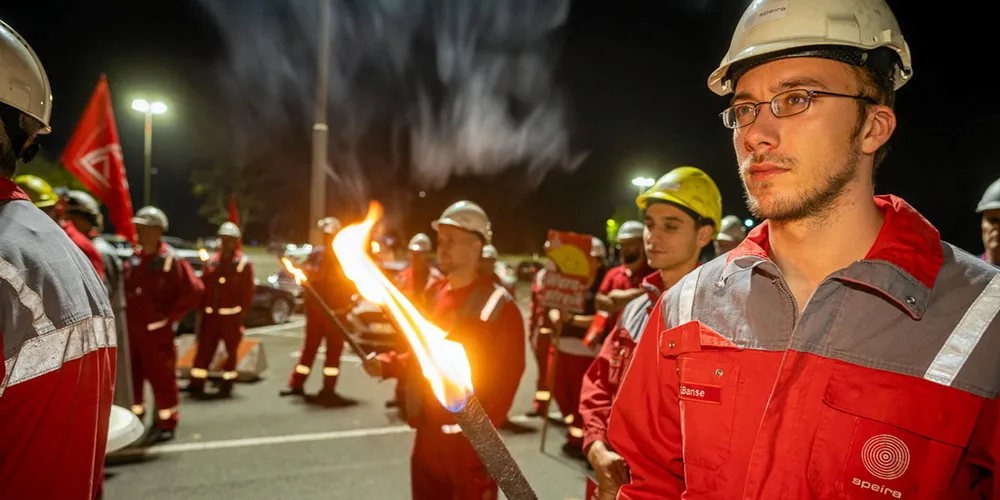'Increasing the pressure' | Union calls for another weekly strike at Vestas in Germany
Call for work stoppage comes after more unionised workers in metals and engineering sector elsewhere have pushed through substantial salary hike

Germany’s powerful metal workers union IG Metall has asked employees for Vestas to go on another five-day strike this week, starting Monday, to push through salary increases and force the wind turbine OEM to grant collectively agreed working conditions for its staff.
The strike will be accompanied by protest actions across the country, among others on Thursday, when employees are called to participate at a rally in front of Vestas Germany headquarters in Hamburg.
“We're increasing the pressure. Colleagues stop working because they have a legitimate interest in the employer finally taking care of their issues,” IG Metall Rendsburg managing director Martin Bitter said.
“After all, we are talking about the specialists of the energy transition. Topics such as regular wage increases, special payments or partial retirement should be part of sustainable working conditions.”
Most of the company’s about 1,700 employees in the country work in the service business, and it is unclear how unionised they are.
Closely mirroring a comment made about the strike action earlier this month, Vestas said it strongly regrets IG Metall's call for a strike in ties of a global energy crisis and energy security.
"Vestas remains convinced that our approach of also regulating pay issues in trusting cooperation exclusively with the works council is the best way forward."
The OEM stressed that the aftermath of the Covid-19 pandemic and Russia's war in Ukraine were external factors the company can't influence, but which have hit Vestas and the wind industry hard.
"Despite all of this, Vestas has worked relentlessly to support our employees in the best possible way.
"Amongst other measures, we brought forward a proposal to the works council to significantly increase the salaries of our service technicians. However, influenced by IG Metall, our works council decided to not sign the proposed agreement."
IG Metall claims the company in July had broken off salary negotiations, which led to the calls for strike.
Vestas according to German media reports has refused to negotiate with the union directly, and only talks to the works council of the company.
Not accepting the bargaining power of unions means companies are not bound to collective agreements and can negotiate individual deals for their company that aren’t always as advantageous for workers.
Workers in the metals and engineering sector in unionised companies in much of Germany have successfully pushed through salary increases of 5.2% and 3.3% respectively for the coming two years, as well as a one-off payment of €3,000.00 to compensate for inflation.